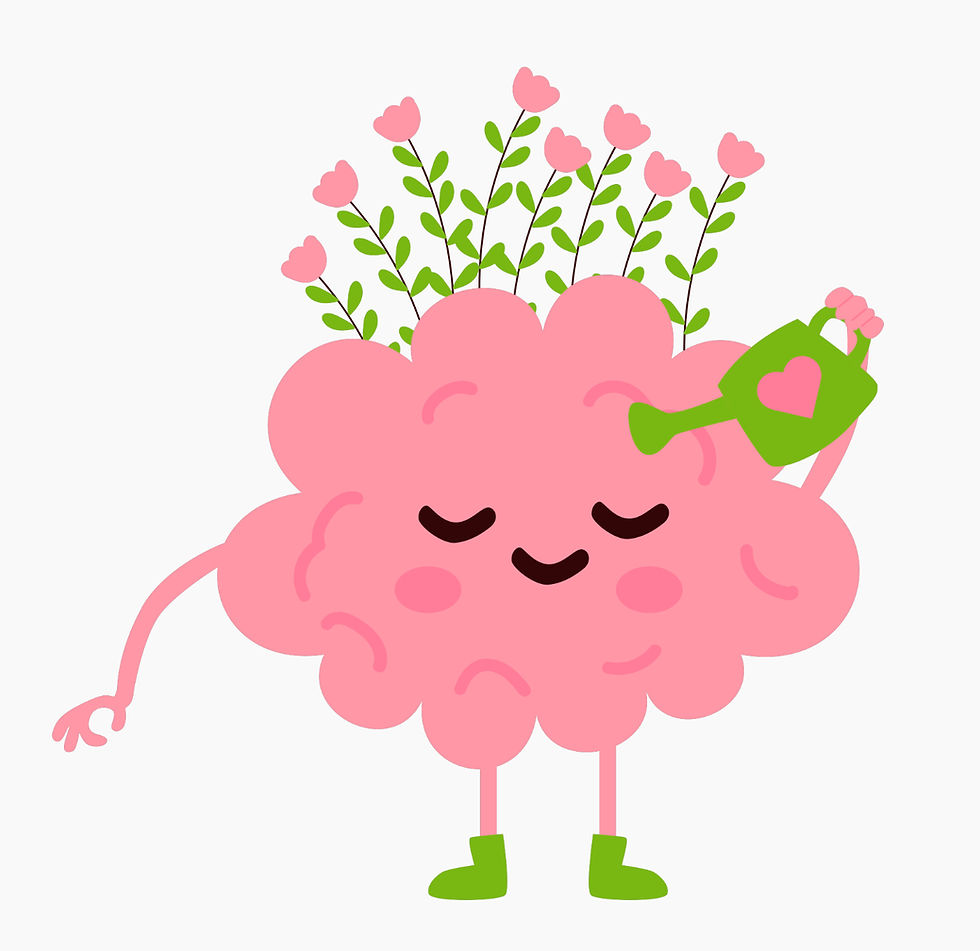PMS/PMDD and how Traditional Chinese Medicine Acupuncture can address hormonal imbalance
- Dr Sunila Prasad

- Apr 24, 2024
- 4 min read
Premenstrual dysphoric disorder (PMDD) is referred to as a severe form of Premenstrual Syndrome (PMS). 30% of women with periods experience moderate and severe PMS, whilst 5-8% have PMDD. Both PMS and PMDD are linked to fluctuations in our menstrual cycle, where symptoms are experienced cyclically.
PMDD is different from PMS in a couple of ways. In PMDD, there is a distinct neurobiological sensitivity to hormones. There are over 100 physical and mental health symptoms linked to both PMS and PMDD (see a few in the table below). However, the psychological symptoms are significantly more severe in PMDD including heightened emotions such as anger, frustration, sadness and suicidal ideation.The influence PMDD can have on productivity at work and interpersonal relationships including with partners and as parents cannot be underestimated.

The lack of awareness of the link between hormonal health and mental health, particularly with PMDD, can lead to delays in diagnosis and subsequent treatment. Both PMS and PMDD have gynaecological, psychiatric and endocrine implications- with the continuing cuts to NHS resources, ownership in treating these conditions is lacking. And with women’s health research being historically underfunded it is unlikely anything will drastically change to improve this.
However, awareness is the first step to advocacy. Here are a few ways to help you figure out if you have PMS or PMDD.
Keeping a cycle and symptom diary is a good start to help you figure out whether you might be experiencing PMS or PMDD. Symptoms are more dominant in the second half of your cycle and are eased with the onset of your period.
Significant impact on your quality of life- this doesn’t have to relate to your productivity levels (although this may be a more objective measure). This is specific to you and if you feel your symptoms are severe, this is enough of a qualification!
Your intuition! For some women who are diagnosed with anxiety and/or depression, they may have a niggling feeling that the diagnosis isn’t quite right for them. And in the screening questions for those conditions, there isn’t any mention of whether your symptoms are cyclical in nature or not. Trust your gut, and if you think hormonal fluctuations are affecting your symptoms then engage in the symptom diary mentioned.
The next step is figuring out what treatment or treatments might work for you, and for some this might be trial and error. The following may be potential routes forward:
Western medical treatment- this typically involves contraceptive medication, which for some can be life changing. Every medication has benefits and side effects, and not all contraceptives have the same effect. Ask your GP lots of questions so you are fully informed and don’t be afraid to ask for alternatives if a particular option isn’t working for you.
Supplements- there is growing evidence that supplements like vitamin B6, magnesium, calcium/vitamin D, Soy/Redclover, Agnus Castus, St.John’s Wort and Inositol can help alleviate symptoms. However, currently all the western evidence base behind the efficacy of these supplements is lacking robustness to be officially recommended.
Addressing your lifestyle and diet may help to identify potential triggers that exacerbate the psychological and behavioural symptoms with PMS/PMDD. Cue TCM Acupuncture..
Whilst studies exploring the efficacy of Acupuncture for PMS/PMDD symptoms have shown some promising results the evidence base from a Western scientific perspective is still limited (partly due to lack of funding in Women’s Health and limitations in study designs in researching Acupuncture). However, from a Chinese Medicine perspective, Acupuncture can offer a truly holistic approach to not only managing symptoms but addressing the root cause of them. Acupuncture for PMDD/PMS and hormonal imbalance can be applied in the following ways:
Balancing Yin and Yang: Traditional Chinese Medicine Acupuncture aims to restore the balance between yin and yang energies in the body, which may be disrupted during the menstrual cycle. By harmonising these opposing forces, acupuncture can alleviate symptoms such as mood swings, irritability, and emotional instability.
Regulating Qi Flow: Acupuncture stimulates the flow of qi, the vital energy that circulates throughout the body. By ensuring smooth qi flow, acupuncture can help reduce physical symptoms such as bloating, breast tenderness, and abdominal discomfort.
Nourishing Shen (Spirit): Acupuncture treatments can help nourish the Shen, or spirit, by promoting relaxation, reducing stress, and improving emotional well-being. By calming the mind and promoting a sense of inner peace, acupuncture can help manage symptoms such as anxiety, depression, and mood disturbances.
Addressing Liver Qi Stagnation: In Traditional Chinese Medicine, liver qi stagnation is often associated with emotional symptoms such as irritability, anger, and frustration, which can worsen during PMS and PMDD. Acupuncture can help regulate liver qi flow, promoting emotional balance and reducing these symptoms.
Supporting Kidney Essence: The kidneys are considered the foundation of yin and yang energies in Traditional Chinese Medicine. Acupuncture can support kidney essence, which is vital for reproductive health and hormonal balance. By strengthening the kidneys, acupuncture can help with symptoms such as fatigue and irregular menstruation.
A Chinese Medicine perspective on your diet and lifestyle may shine a light on a few tweaks that can be made, helping you to heal from the inside out.
Treatment with Acupuncture typically relies on regular treatment for at least 2-3 cycles due to its cumulative effect- if you have any questions about whether Acupuncture might be able to help you, just get in touch. Menstrual symptoms are no longer something you just have to cope with- experience the transformative power of acupuncture and discover relief from the challenges of PMS and PMDD.
Please visit: https://www.pms.org.uk/ for more information on PMS and PMDD




Comments